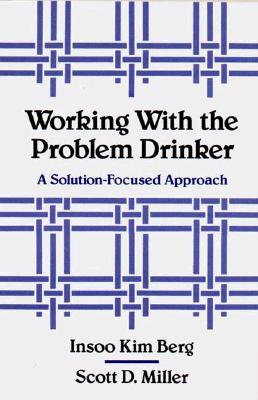
Book
Working with the Problem Drinker: A Solutionfocused Approach
(Write a Review)
Paperback
$27.95
The authors successfully utilize solution-focused therapy in their work with problem drinkers, but it is their philosophy of working with clients--and within clients' belief systems--to encourage change that is at the heart of their model. The model, grounded in the philosophy of solution-focused brief therapy, introduces a paradigmatic change in the approach to substance abuse treatment. Rather than treating a problem drinker, Berg and Miller work with clients to treat problem drinking. The authors' refreshing blend of respect for their clients and optimism about their ability to stop abusive drinking offers hope to clients who can't fit into traditional long-term programs or who have given up on themselves. This book shows how clients can be helped to construct a future where drinking or substance abuse is no longer a problem.
Solution-focused therapy, based on respect for and collaboration with the client, concentrates on success and solutions. Therapists develop goals with the client, rather than imposing "appropriate" treatment objectives. If one solution doesn't work, the technique--not the client--is blamed and client and therapist go on to "do something different." The authors' model is much more than a list of interventions; it is a multi-faceted approach to treatment, which can adapt to anything that works, whether brief therapy, AA, or more formal inpatient programs.
The authors successfully utilize solution-focused therapy in their work with problem drinkers, but it is their philosophy of working with clients--and within clients' belief systems--to encourage change that is at the heart of their model. The model, grounded in the philosophy of solution-focused brief therapy, introduces a paradigmatic change in the approach to substance abuse treatment. Rather than treating a problem drinker, Berg and Miller work with clients to treat problem drinking. The authors' refreshing blend of respect for their clients and optimism about their ability to stop abusive drinking offers hope to clients who can't fit into traditional long-term programs or who have given up on themselves. This book shows how clients can be helped to construct a future where drinking or substance abuse is no longer a problem.
Solution-focused therapy, based on respect for and collaboration with the client, concentrates on success and solutions. Therapists develop goals with the client, rather than imposing "appropriate" treatment objectives. If one solution doesn't work, the technique--not the client--is blamed and client and therapist go on to "do something different." The authors' model is much more than a list of interventions; it is a multi-faceted approach to treatment, which can adapt to anything that works, whether brief therapy, AA, or more formal inpatient programs.
Paperback
$27.95